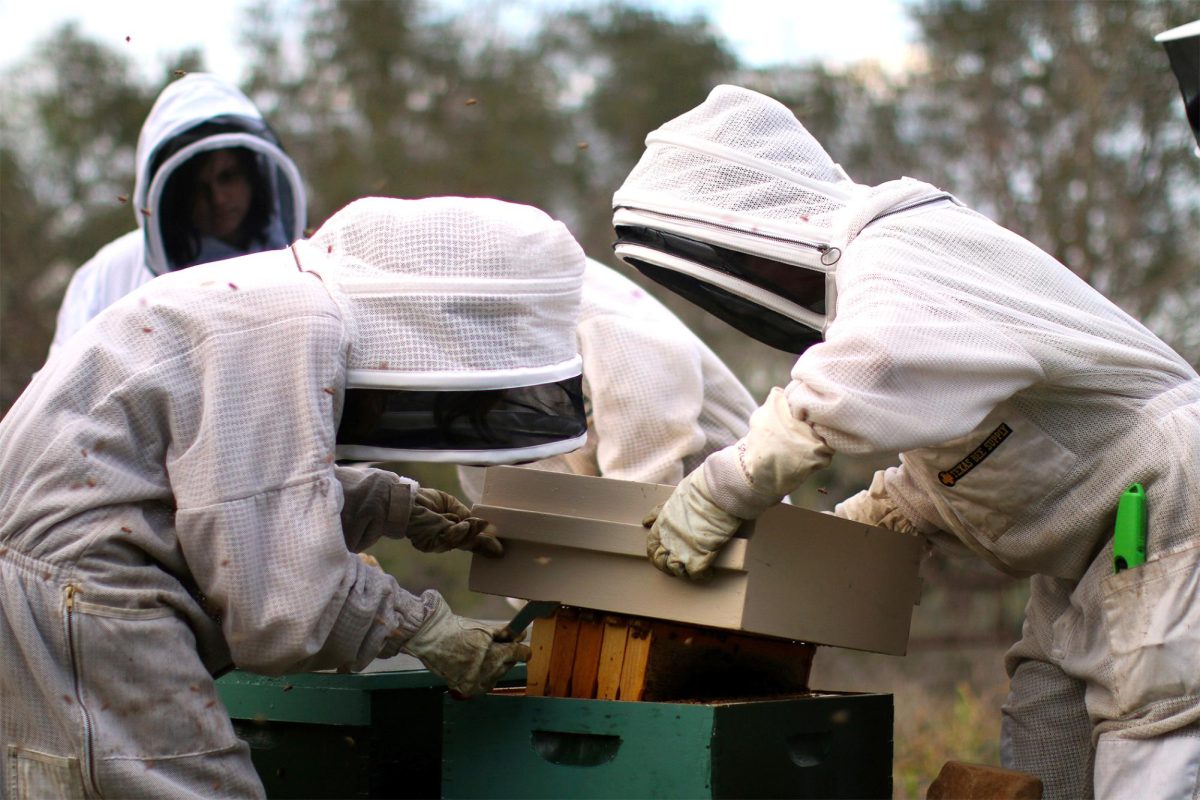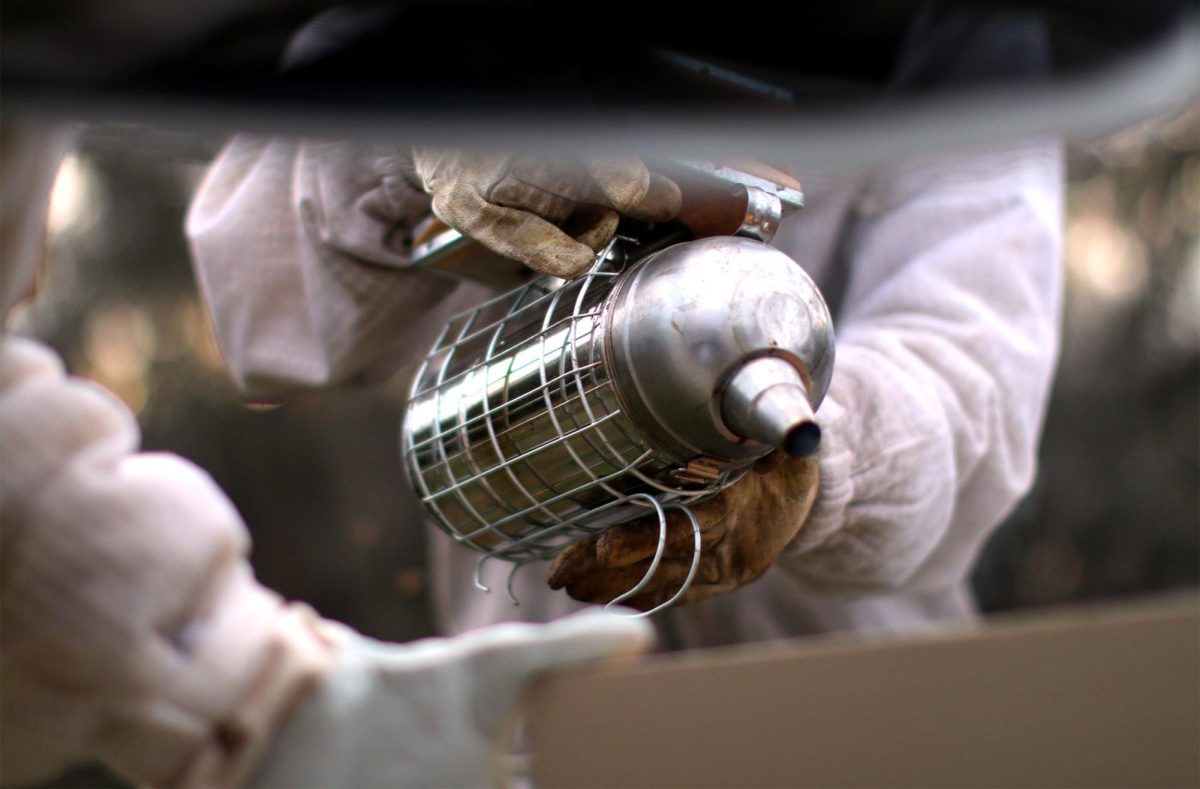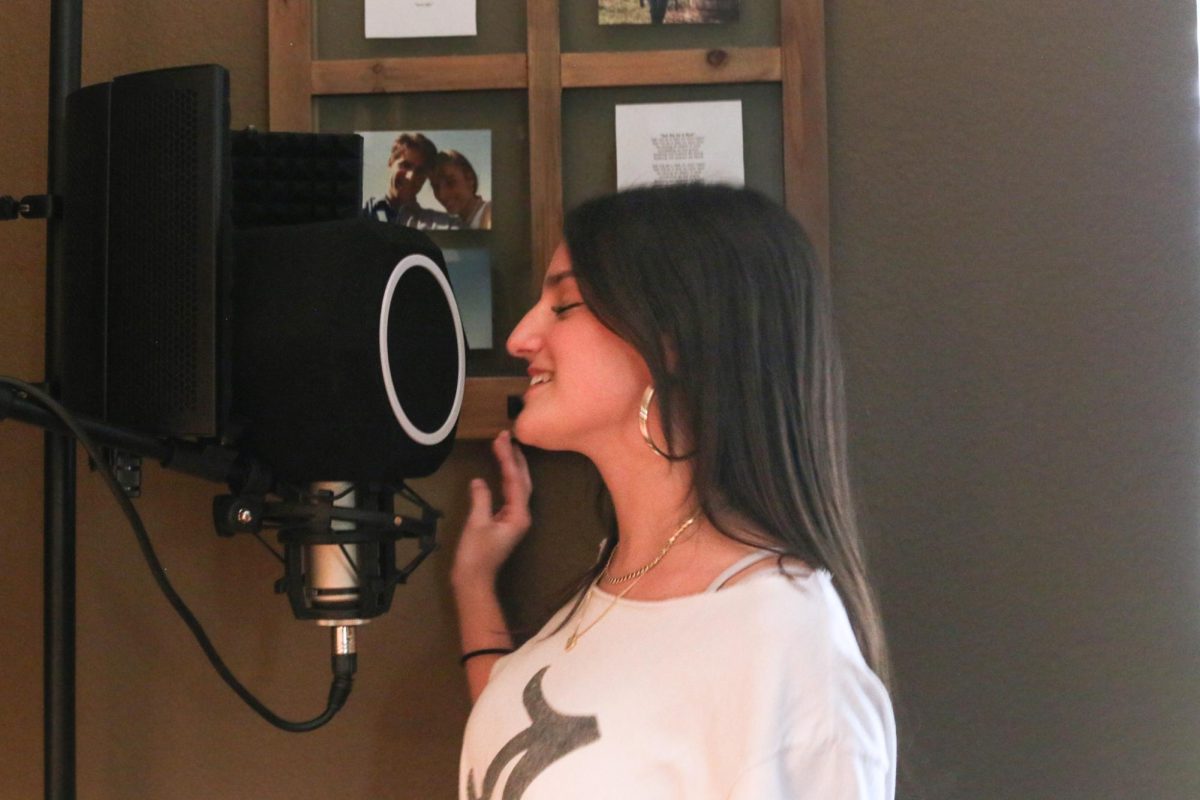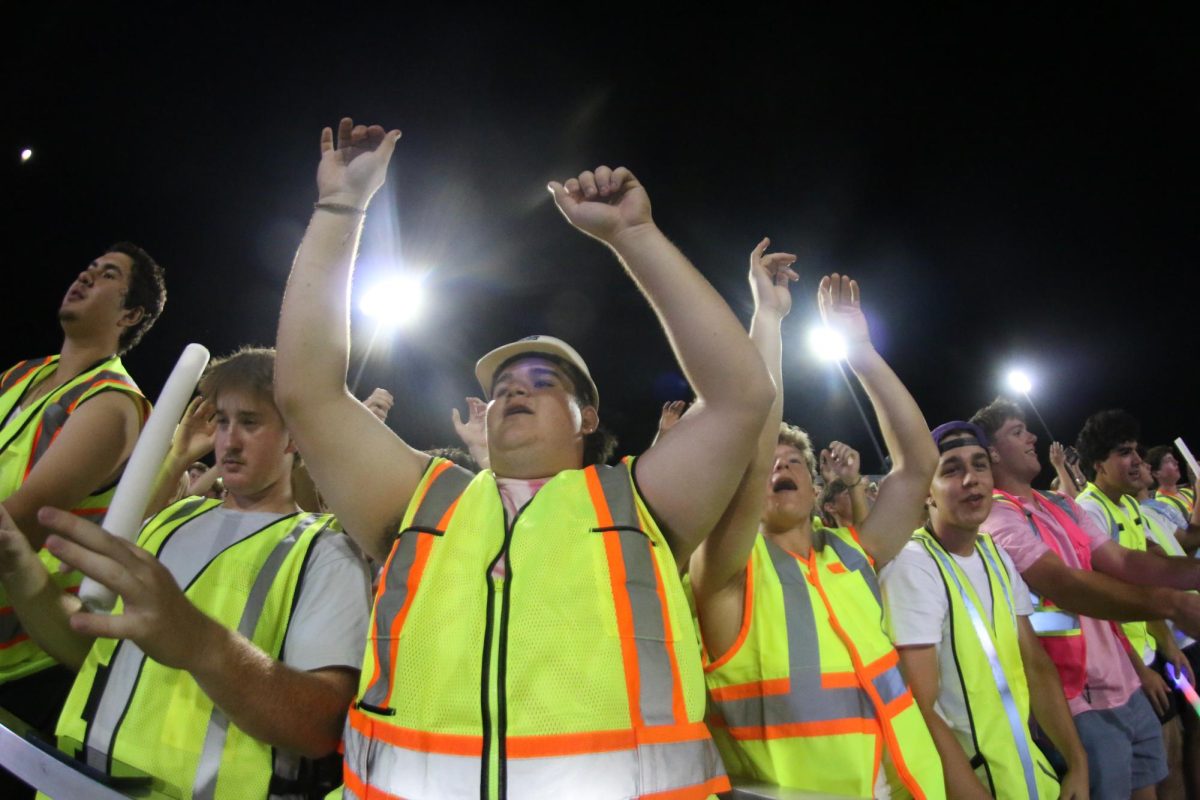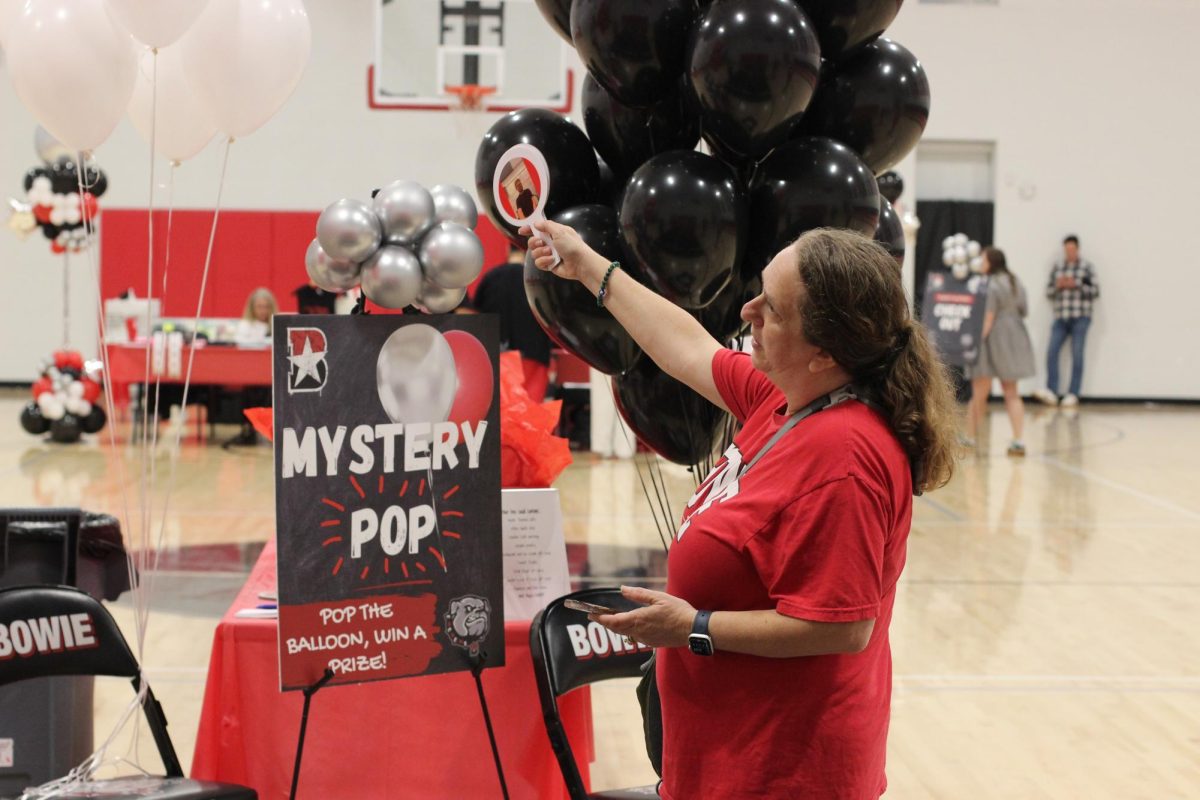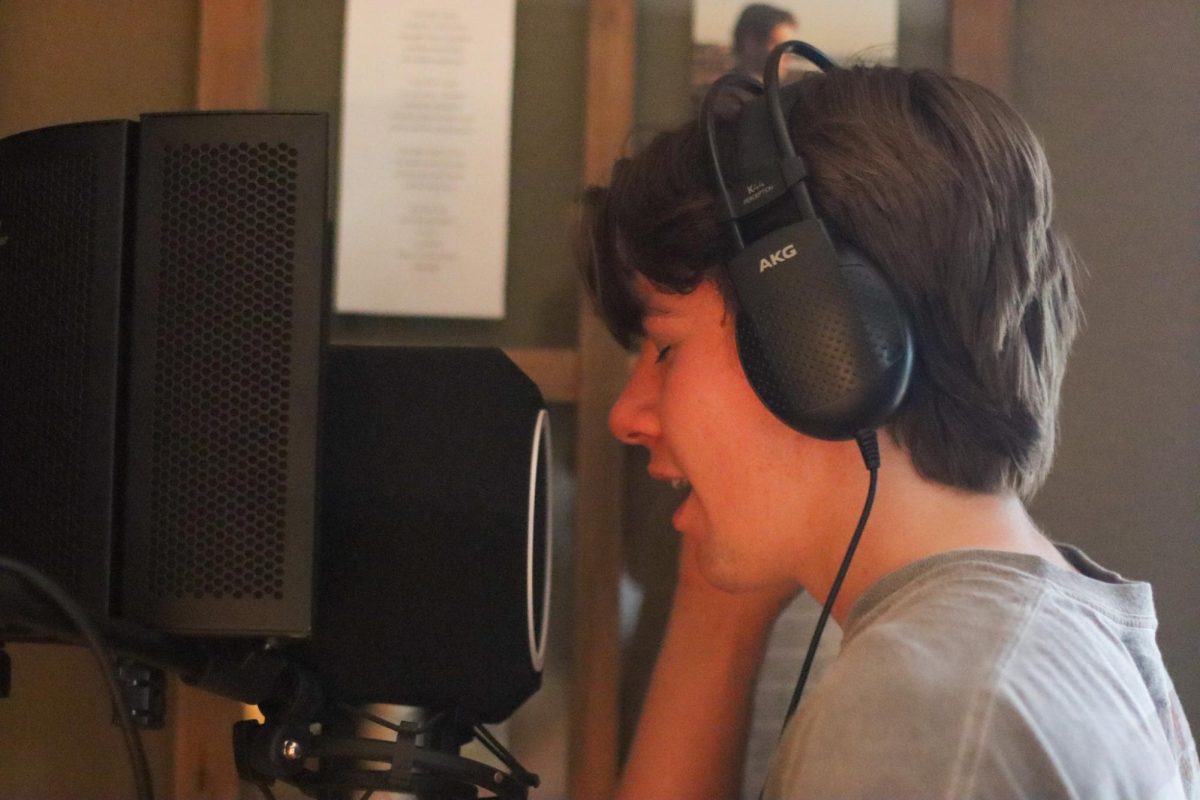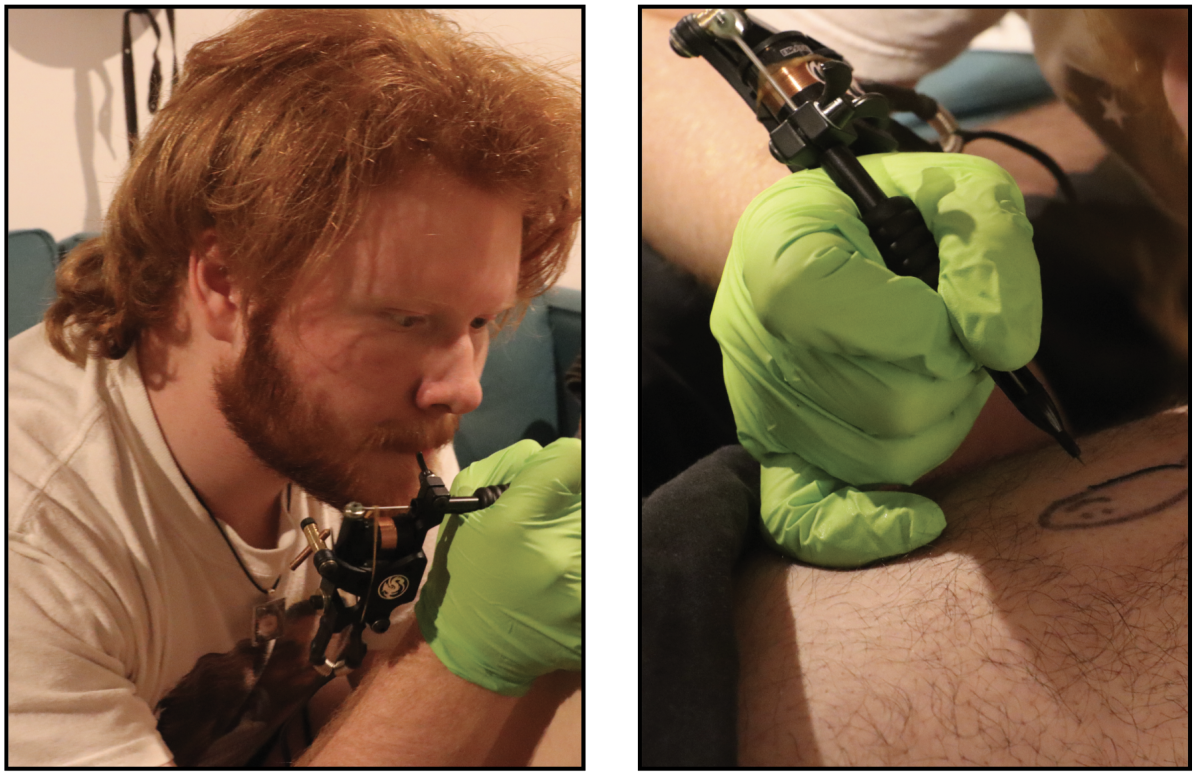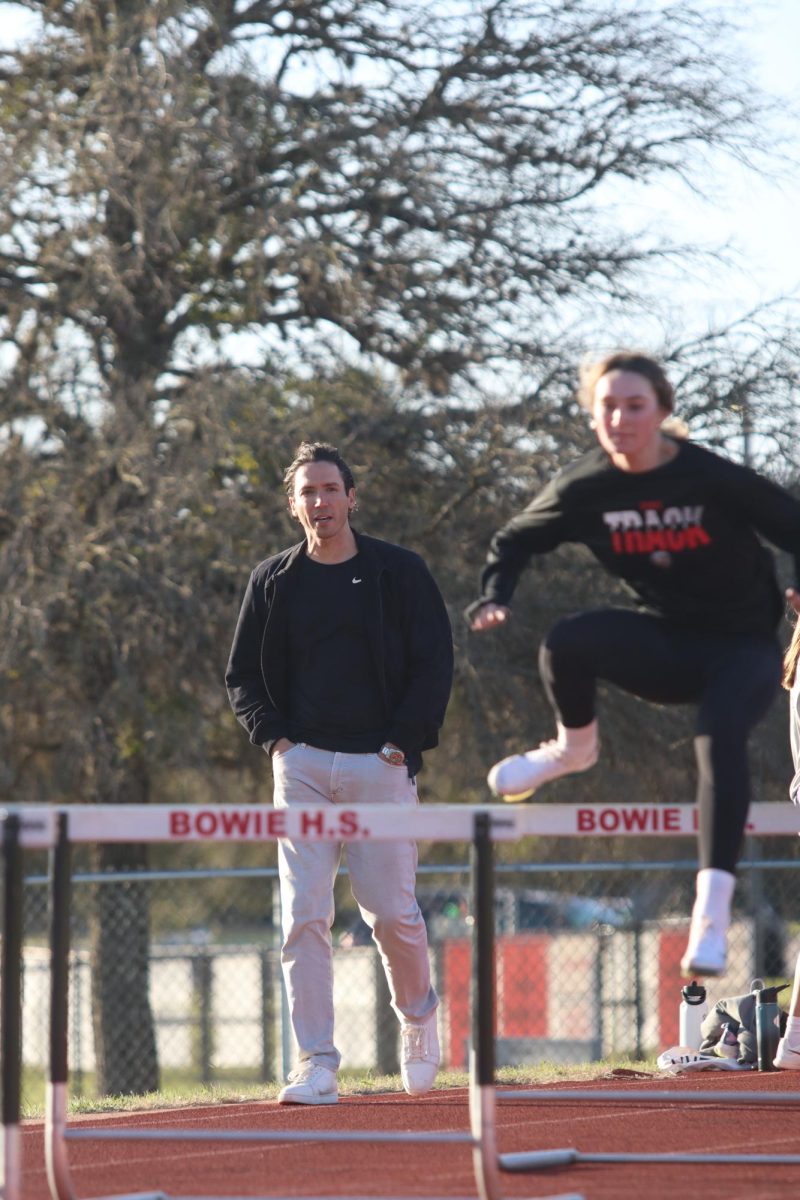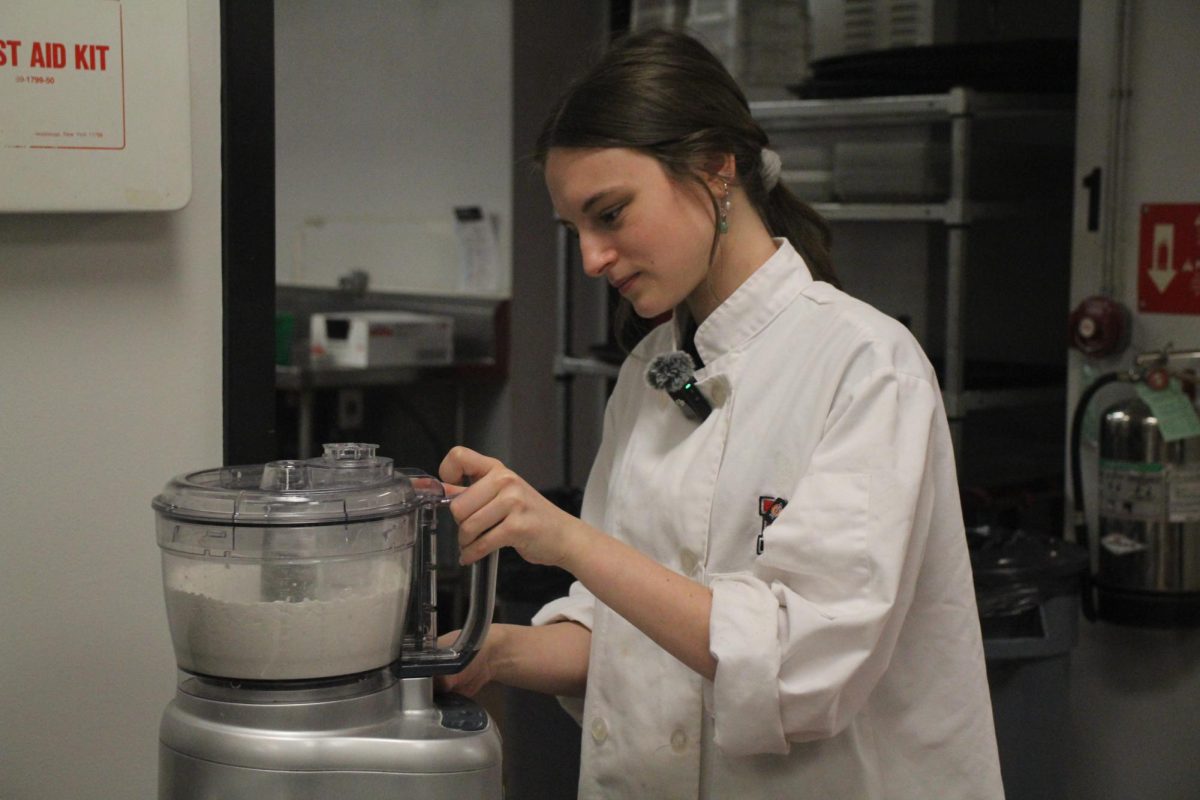In the meticulous world of beekeeping, with the smell of smoke in the air, and the distinct buzz of wings fluttering, a beekeeper’s suit protects them from the dangers of handling the thousands of bees. For many, finding the right equipment is the first step to starting their journey into bee keeping.
“Texas Bee Supply really stands out among local sources,” Bee Club Supervisor Nona Spillers said. “What’s most important is that you get what you’re comfortable in.”
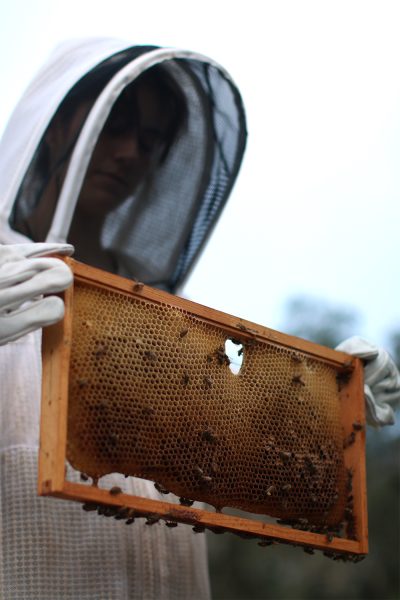
In the intricate dance with these vital insects, the backdrop changes drastically with the change of the seasons. According to the national institute of health, the average number of bee losses in winter is 32.2%, with some state losses as high as 58%. Once bustling communities dwindle to around 10,000 bees, underscoring the delicate balance and challenges beekeepers face in managing their colonies.
“With the cold weather we’ve just had, the size of the colonies are decreasing much more than we expected,” Spillers said.
When dealing with our friendly pollinators, unpredictable weather calls for an extra layer of caution, reminding practitioners that control is a luxury. The ever-changing disposition of bees demands constant vigilance to ensure both beekeeper and bee well-being.
“When you’re in a vehicle, you’re not in control; the bees and Mother Nature are.” Spillers said.
Additionally to protecting bees when on the job, the bee club has been adamant on emphasizing the urgent need to raise awareness about the integral job bees play in sustaining our environment. According to regulations.gov, the American honeybee has declined by 89% in the last 20 years as well as completely disappearing from eight states.
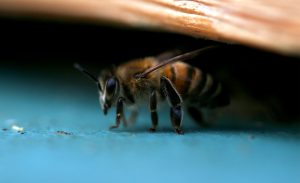
“Bees have become an endangered species yet they are still extremely vital to our natural habitat and the ecosystem as a whole,” bee club president Julia Day said.
Despite these deeply concerning statistics, beekeeping is without a doubt a fulfilling communal experience for many. This enthusiasm and curiosity signifies a broader truth—that people genuinely care about the well-being of these industrious pollinators.
“Onlookers are always asking us ‘Are the bees out’ and ‘Can I see the bees,” sophomore Blake Ferguson said.


